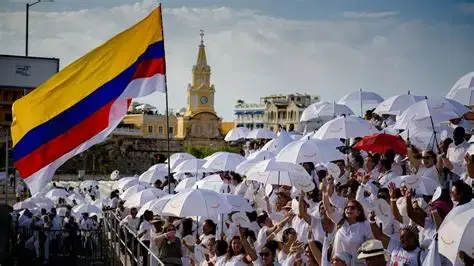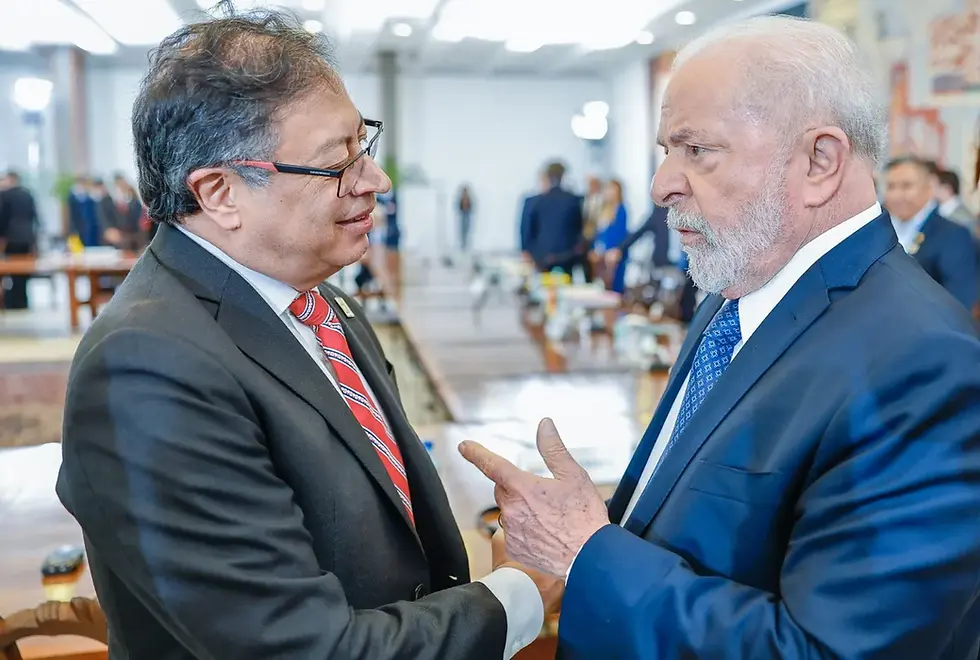Guantanamo, a Legal Black Hole 21 Years Later
- Haizea Herrera

- Dec 21, 2024
- 3 min read
Written by Haizea Herrera (BSc Politics and Economics)
The Guantanamo Bay detention centre is an American offshore facility established under President George Bush’s administration, in his efforts to wage a ‘war on terror’ consequential of the terrorist attacks which unfolded on September 11th 2001. The lack of clarity over the sovereignty of Guantanamo Bay has allowed for countless human rights abuses in the detention and trial proceedings of inmates, operating under a vacuum where neither US nor international law apply. At present, the holding facility remains in operation, with 35 detainees. Of those remaining, many have been tortured, but most have never been charged with a crime. 16 of these were cleared for release as of 2023, yet remain in captivity. This prolonged detention without formal charges raises profound questions about justice and accountability.

Despite its front as a counterterrorist organisation, defendants were repeatedly violated of their rights to fair trials, denied access to unbiased arbiters and subjected to the exclusion of critical evidence. These oppressive proceedings prevent justice from being served to those responsible for the 9/11 attacks. Evidence from a 2023 report by the UN Special Rapporteur highlighted human rights violations against 780 Muslim men and boys, with all of them being held under indefinite detention. The total number of convictions, however, is a mere seven, of which five resulted from pre-trial agreements. Furthermore, reports from numerous inmates of torture and inhumane treatment during their captivity has fuelled widespread condemnation for Guantanamo.
One prisoner, Shaker Aamer, was kept in captivity for eight years after he’d been cleared for transfer in 2007, having already served 13 years in the detention camp without charge or trial. His lawyers claim that his prolonged imprisonment was due to Aamer witnessing US and UK agents torturing men. While captive, he was subject to regular force-feedings, frequently forced into solitary confinement, and beaten by the “forcible cell extraction” team - who have stormed the cells of detainees in riot gear over 300 times. These practices not only contravene U.S. laws but also violate international treaties such as the Convention Against Torture.
As many as 200 detainees have been on hunger strike at once in Guantanamo, protesting their conditions and breaches in human rights. The facility had 25 restraint chairs used to force-feed inmates who went on hunger strike, through their nasal cavities. Human rights lawyers have long condemned force-feeding as a form of torture but they also oppose the way it was suspended in multiple cases for Guantanamo inmates - who were allowed to slowly waste away and went months without food.
There have been varied attempts to close the facility by the presidential administrations which followed Bush. Notably, President Obama campaigned on the promise of terminating the holding centre, but was hindered by political opposition and legal complexities. Trump, on the other hand, expressed intentions to keep it open and “load it up with some bad dudes”. As of 2023, the Biden administration reiterated intentions to close down Guantanamo, but tangible progress has yet to be observed. Reflecting poorly on its commitment to upholding human rights standards, this calls for a comprehensive reevaluation of America’s stance on counterterrorism policy, which evidently fails to prioritise the rule of law.
As discussions continue about justice, accountability, and the future of Guantanamo, its legacy remains a contentious issue that reflects broader tensions between security and civil liberties.
The indiscriminate round-up of hundreds of Muslim men which occurred in Guantanamo under the farce of counterterrorism, is one which urgently needs to be corrected by the US. Closing Guantanamo is not merely a matter of shuttering a facility; it requires a commitment to addressing the grievances of detainees, ensuring their rights are respected, and pursuing justice for those wrongfully imprisoned.



Comments